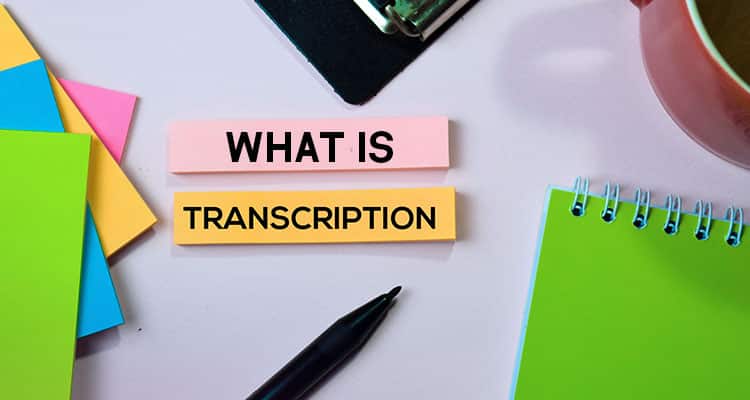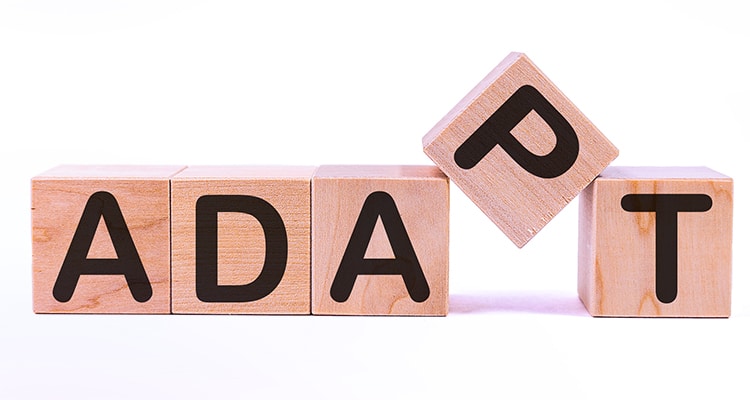Working-from-home is now the norm. You should find ways to earn at home to protect yourselves from health hazards. To boot, you will have more flexibility in your time and might even earn quite a sum of money.
And arguably, one of the most accessible remote working online jobs is a transcription career.

What is Transcription?
Transcription is a documentation method where you type out audio recordings to written documents. There are three common types of transcription. These are:
- General transcription
- Legal transcription
- Medical transcription
For medical transcription, you need to pass a certification in order to practice. It’s because of the technical nature of the recordings. For other types like general transcription, you just need to hone a few skills to become one.

Here is the salary range for a transcriptionist. Sounds easy? Well, it’s more than just typing audio. Here are 8 skills you need to become a sought-after transcriptionist.

Exemplary Listening Skills
You might think it’s quite obvious that you should have listening skills. And everyone who can listen and type can be a transcriptionist. There is some truth to that. But then, audio files aren’t created equal.
There are audio recordings that will be really crisp. You might blaze through transcribing it.
But there will be audio files that aren’t as clear. The speaker might even be in a noisy place, with a strong accent, and with multiple people talking at once. That 1 hour recording will take too much time without your listening skills.

Fast and Accurate Typing Skills
While listening, you now need to type the words in a document. But there is a standard speed for typing. On average, you should be able to type at around 60-75 words per minute with 98% accuracy. In this way, you can get more audio files transcribed.

Close to Perfect Grammar
While transcribing needs to input exact words, you should know how to proofread and provide a written document with close to perfect grammar. It’s essential especially for highly technical materials in the legal and medical field.

Attention to Detail
Some transcription jobs need the exact words spoken in the audio file. If they said, “Uhm uhmm, okay, uhm” in that sequence, it should be present in the transcription. Some transcription jobs even need to indicate the emotion of the speaker at that time.
With that, you need strong attention to detail to document such happening.

Research Skills
When we listen to the audio files, we might not hear the proper pronunciations. Or we may encounter foreign words that might be a jargon for a certain industry. With this, you must know the context of the audio.
And you need to have the research skills to find the proper terminology and spelling for the transcription.

Good Guesser
Even with the research, sometimes you really can’t understand the word uttered in the recording. Great transcribers can pick up the context of the audio file, and give an intelligent guess for the word gaps that might be missing.

Adaptive and Flexible
Most companies already have a style guide for you to follow. When you transcribe, you should be adaptive and flexible enough to follow the standards set in place.
You should be able to switch between colloquial and formal styles depending on the need. In this way, you can be sought after because you can transcribe to a voice understandable by a wide range of readers.

Patience
When transcribing, out of all the qualities above, you need to have the patience. Your transcribing will not always be in perfect circumstances. There will be hiccups like poorly recorded audio or cultural twangs.
You should be patient in transcribing to create a comprehensible transcription for your clients.

Tools Needed for a Transcription Job
With all the qualities above, what tools should you use to flourish your transcribing career? First of all, you need a desktop or laptop to input the data. Next, you need reliable headphones to clearly understand the recordings.
A push pedal is also encouraged to make your transcribing faster. It’s a device that can free up your hands when you play, pause, and rewind audio clips.
Some even use a transcription software for additional functionalities and efficiency to transcribe more in a given time.

Conclusion
There you have it! The most crucial skills and tools that you need to have become a sought-after transcriptionist. If you’re looking for a transcriptionist online job, check out this link for possible opportunities. Good luck!

